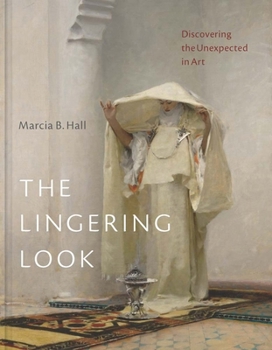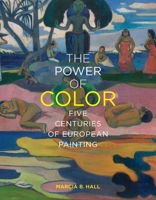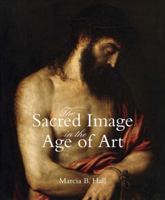The Lingering Look: Discovering the Unexpected in Art
Select Format
Select Condition 
Book Overview
An invitation to look closely at artworks and explore the techniques artists use to draw viewers in and keep them interested Estimates of how much time museum visitors spend looking at works of art vary, but they rarely exceed half a minute. Throughout history, artists have recognized that they need to grab viewers' attention and entice them to linger, often through deviations--subtle or overt--from reality. In this book, Marcia Hall guides readers through close looks at more than forty works of art by celebrated artists from Botticelli to Henri Matisse to Georgia O'Keeffe. Hall's concise essays immerse us in the context in which these works were made and draw on the findings of recent conservation studies to reveal otherwise hidden aspects of artists' processes. We discover how Artemisia Gentileschi's depictions of female protagonists radically departed from tradition and how Edgar Degas used brushwork and composition to subvert expectations about perspective. Through focusing on how to experience works of art in depth, Hall reveals new layers of significance and encourages reflection on what they mean to us today. The book concludes with an afterword by painter Lisa Yuskavage, who describes how she captured the lingering look of viewers in her own work.
Format:Hardcover
Language:English
ISBN:0300266022
ISBN13:9780300266023
Release Date:August 2025
Publisher:Yale University Press
Length:200 Pages
Related Subjects
Biographies Criticism & Theory Gay & Lesbian Gay & Lesbian Studies History History & Criticism History & Surveys Literary Criticism Literary Criticism & Collections Literary Theory Literature Literature & Fiction Nonfiction Philosophy Politics & Social Sciences Social Science Social Sciences Specific DemographicsMore by Marcia B. Hall
Customer Reviews
3 customer ratings | 3 reviews
There are currently no reviews. Be the first to review this work.

























